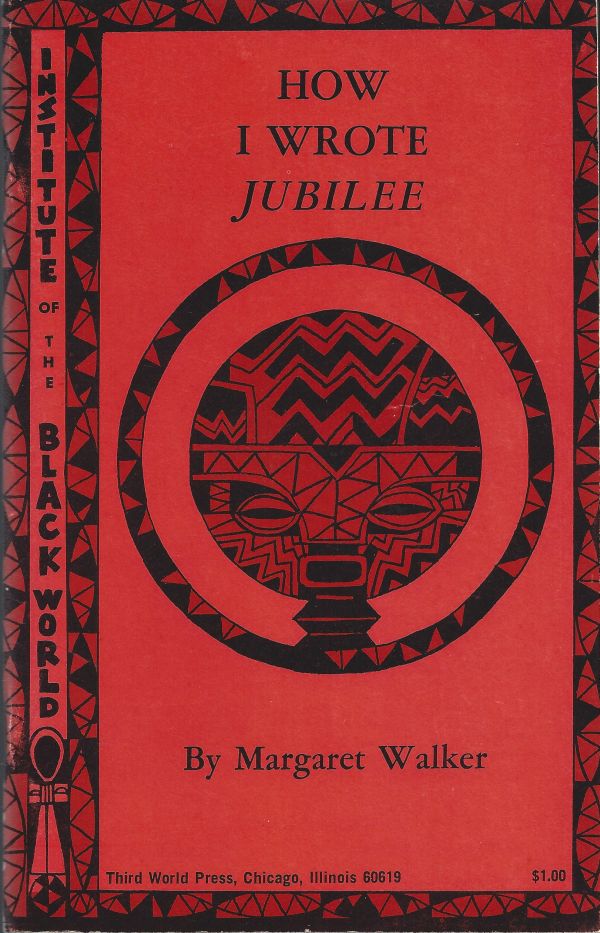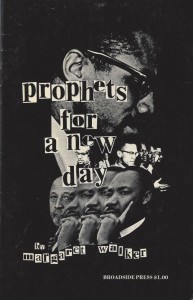 As a young girl, Margaret Walker Alexander listened to her grandmother’s stories. Walker decided at the age of nineteen that “she would clothe that ‘naked truth’ in all the power and beauty of fiction,” and she spent the next thirty years meticulously researching her family’s stories of slavery and the Civil War from every side. When Walker’s novel “Jubilee” was published in 1966, Harper’s Magazine asked her to submit an essay about how she wrote “Jubilee.”
As a young girl, Margaret Walker Alexander listened to her grandmother’s stories. Walker decided at the age of nineteen that “she would clothe that ‘naked truth’ in all the power and beauty of fiction,” and she spent the next thirty years meticulously researching her family’s stories of slavery and the Civil War from every side. When Walker’s novel “Jubilee” was published in 1966, Harper’s Magazine asked her to submit an essay about how she wrote “Jubilee.”
 Unexpectedly, Walker’s essay for Harper’s was rejected in 1967.
Unexpectedly, Walker’s essay for Harper’s was rejected in 1967.
Instead, “How I Wrote Jubilee” was published in the form of a chapbook by a small press called Third World Press in 1972. Founded in 1967 by Haki R. Madhubuti, a poet and one of the leaders in the Black Arts movement, Third World Press ran alongside another important black literary press of the time, Detroit’s Broadside Press, which published Walker’s “Prophets for a New Day” and “October Journey.”

In 1967, Mississippi’s Willie Morris had just been appointed as the managing editor at Harper’s Magazine. In his memoir “New York Days,” Morris reflected on Harper’s very “modest” operation and their $150,000 deficit. One way to increase their circulation was to publish excerpts of the latest novels. Bitingly, it was “The Confessions of Nat Turner” by William Styron that booted Walker’s essay out of Harper’s—as noted in “How I Wrote Jubilee.” Though Styron also went on to win the Pulitzer Prize for Literature that year, the novel received a great deal of criticism for being more sensational than historically accurate in its depiction of the slave revolt of Nat Turner. While James Baldwin and Ralph Ellison praised “Nat Turner,” much of the black community frowned upon it. Over the years, the admiration and respect for Walker’s “Jubilee” has only grown.
Small presses like Third World have stood for authors like Walker who needed a platform for their work. In publishing “How I Wrote Jubilee,” Third World Press provided a lasting and beautiful chapbook which includes Walker’s essay, a Foreword, Afterword and Discussion Questions for “Jubilee.” Third World is still owned by its founder Haki R. Madhubuti. While most black presses went out of business or were bought out by large corporations, the press maintains its independence despite challenging times.
Original to the Clarion-Ledger


Comments are closed.